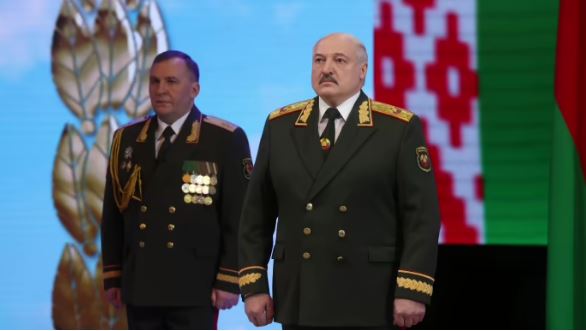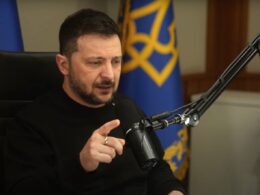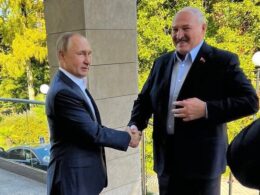Belarusian dictator, Alyaksandr Lukashenka, says that he wants militants from the Russian Wagner Group to train the Belarusian military, the Belarusian propaganda agency BelTA reported.
At a meeting with Belarusian Defense Minister Viktor Khrenin, Lukashenka stated that the mercenaries, some of whom are expected to come to Belarus following an unsuccessful armed insurrection in Russia, could share their combat experience with the Belarusian army. “People don’t understand that we are pragmatic about this. If their commanders come to us and help us… Experience. Listen, they are on the front line – assault squads. They will tell us what is important now.”
The Belarusian army is interested in counter-battery warfare and working with drones, according to Lukashenka. He further added, “They will tell us about the weapons: which worked well, which did not. And tactics, and armaments, and how to attack, how to defend. This is invaluable. This is what we need to take from the Wagnerites.”
On 24 June, the leader of the Wagner Group, Yevgeny Prigozhin, announced a march on Moscow after claiming that the Russian army struck the organization’s rear. Later that day, Prigozhin, through the mediation of Lukashenko, reached an agreement with the Russian authorities and announced the withdrawal of troops.
On 27 June, Lukashenka told that Prigozhin had arrived to Minsk, confirming previous information about his plane landing in the Belarusian capital. The Head of the Senate Intelligence Committee in the US, Mark Warner, stated that Prigozhin is staying in a windowless room in one of the hotels in Minsk.
It is so far unclear how many Wagner fighters would follow Prigozhin to Belarus. The Main Intelligence Directorate of the Ministry of Defense of Ukraine reported that there is currently no information about the Wagner Group relocating to Belarus. And Lukashenka, speaking to Belarusian officers, said that so far the mercenaries are staying in Luhansk Oblast. He added that Belarus was not building any camps for the mercenaries, but would help them with accommodation if needed:
“We offered them one of the abandoned [military] units. Please — there is a fence, there is everything. Put up your tents. We will help however we can, while they decide what they will be doing,” he added.
Wagner coup: what happened earlier
After claiming that the Russian Ministry of Defense delivered a missile strike on the flanks of Wagner PMC and announcing a “march for justice” on the night of 24 June and seizing control of Rostov-on-Don, the headquarters of Russia’s invasion army, Wagner financier Yevgeny Prigozhin was prosecuted for organizing an armed insurrection and faced up to 20 years in prison.
In a televised address on Saturday morning, Vladimir Putin said that all those who had “chosen the path of blackmail and terrorist methods” would be punished. According to Ukrainian intelligence, the Russian dictator urgently left Moscow for Valdai, which is between Moscow and St.Petersburg.
Prigozhin has refused to lay down arms and said that Wagner mercenaries were the true “patriots” of Russia. The Russian media outlet Vazhnye Istorii wrote, referring to its sources in the Presidential Administration, that the Kremlin tried to negotiate with Prigozhin but got rejected.
The press service of Belarusian President Alexander Lukashenko reported that the Belarusian leader had been in talks with Prigozhin all day on 25 June on behalf of Putin. A few minutes after this news, the owner of the PMC announced that his mercenaries were returning to the field camps as they were only 200 km from Moscow.
The Kremlin announced that the criminal charges against Prigozhin will be dropped and he will depart to Belarus. In the night of 25 June, Prigozhin departed from Rostov, with bystanders cheering him on. On 27 June, his plane landed in Minsk; Vladimir Putin said that Wagner PMC fighters could join Prigozhin in Belarus.
Russia lost seven aircraft during the mutiny, as Wagner forces shot down the forces deployed to thwart the insurrection. Russian pro-war Telegram channels estimate that 13-20 Russian servicemen were killed. Additionally, an oil depot in the Voronezh Oblast was blown up, and 19 houses and roads were damaged by the march of Prigozhin’s private army in Russia, according to Russian pro-war media and Telegram channels.






